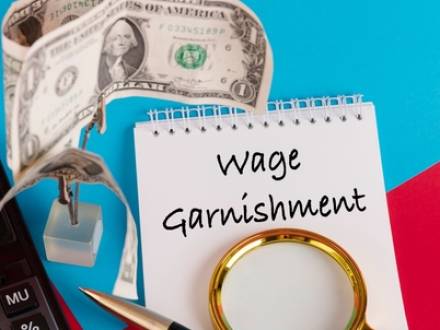Will Bankruptcy Stop Wage Garnishment?
 Having your wages garnished can be frustrating, but there may be a way to stop it. No sooner does your pay post to your bank account than a portion of it disappears to pay off a past debt. This can leave you in a difficult financial position as well. Once your creditor gets its share, you might not have enough left to cover all of your expenses, especially when you are dealing with an unplanned expense like a car repair or a medical bill. Sometimes it is the impossibility of dealing with wage garnishment that prompts people to start looking into bankruptcy. A Bexar County, TX bankruptcy lawyer can help determine whether filing for bankruptcy would stop your wages from being taken.
Having your wages garnished can be frustrating, but there may be a way to stop it. No sooner does your pay post to your bank account than a portion of it disappears to pay off a past debt. This can leave you in a difficult financial position as well. Once your creditor gets its share, you might not have enough left to cover all of your expenses, especially when you are dealing with an unplanned expense like a car repair or a medical bill. Sometimes it is the impossibility of dealing with wage garnishment that prompts people to start looking into bankruptcy. A Bexar County, TX bankruptcy lawyer can help determine whether filing for bankruptcy would stop your wages from being taken.
True Wage Garnishment vs. Asset Seizure
Wage garnishment is when a portion of your paycheck is taken before the funds ever reach you. Your employer would be involved in this process, as the company you work for could not release the full amount of your wages to you directly. If your paycheck is hitting your bank account before a portion of it disappears, this is actually a form of asset seizure rather than true wage garnishment. In Texas, your wages can only be garnished for a few very specific types of debt.
Bankruptcy Stops Asset Seizure, and Sometimes Wage Garnishment
If you are dealing with asset seizure rather than true garnishment, filing for bankruptcy will stop it. This is because all efforts by private creditors to collect on debts you owe must cease immediately when you start bankruptcy proceedings.
However, if you are experiencing true wage garnishment, it may not stop. Your wages can only be garnished for debts stemming from child support, alimony, unpaid taxes, and student loans. Filing for bankruptcy stops garnishment while your case is in court. Whether garnishment will stop permanently depends on whether your debt can be discharged in bankruptcy. Student loans are almost never dischargeable with very limited exceptions, while child support can never be discharged through bankruptcy. Alimony debt may be dischargeable if payments were ordered more than two years ago. Recent tax debts are not discharged, but older tax debts can be.
Your lawyer can help you understand how filing for bankruptcy might impact wage garnishment or asset seizure.
Contact a Bexar County, TX Bankruptcy Attorney
Law Offices of Chance M. McGhee is experienced in helping people find relief from wage garnishment and asset seizure through bankruptcy. Boerne, TX wage garnishment lawyer Chance McGhee currently serves as a Director of the San Antonio Bar Bankruptcy Association. Contact us at 210-342-3400 for a complimentary consultation.






